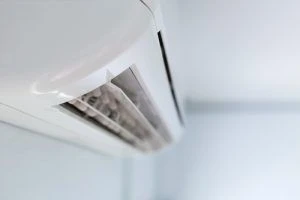Commercial HVAC and Indoor Air Quality: What Every Business Owner Should Know

In today’s business world, providing a comfortable and healthy environment for employees and customers alike is crucial for success. A key element in maintaining that environment is ensuring the indoor air quality (IAQ) is optimal. Poor IAQ can lead to discomfort, health problems, and even lost productivity. This is where commercial HVAC systems come in. They not only regulate temperature but also significantly impact the quality of air inside your building.
To ensure optimal indoor air quality, it’s crucial for business owners to regularly maintain and upgrade their HVAC systems. This not only improves air circulation but also enhances energy efficiency, leading to cost savings. For those looking to delve deeper into air conditioning solutions and best practices, visit the page for comprehensive insights and expert advice. By staying informed and proactive, businesses can create a healthier environment for employees and customers alike, ultimately boosting productivity and satisfaction. Regular assessments and timely interventions are key to maintaining a system that supports both comfort and health.
Why Indoor Air Quality Matters
The cleanness and healthiness of the air inside a house is called its “indoor air quality.” It’s influenced by various factors, such as the amount of ventilation, the presence of allergens or pollutants, and the overall maintenance of the HVAC system. For business owners, poor air quality can lead to various issues, including:
- Health Problems: Pollutants such as dust, mold, and volatile organic compounds (VOCs) can aggravate allergies, asthma, and other respiratory conditions. Employees and customers may experience fatigue, headaches, or eye irritation if the air quality is poor.
- Productivity Loss: A comfortable working environment directly correlates with employee productivity. Poor IAQ can cause discomfort and fatigue, leading to reduced concentration and output.
- Legal and Regulatory Compliance: In some industries, ensuring good IAQ is not just a recommendation but a legal requirement. Business owners may be subject to inspections and penalties if the indoor air quality does not meet standards.
How Commercial HVAC Systems Impact Air Quality
Your commercial HVAC system is responsible for controlling indoor temperature, humidity, and air distribution. When maintained correctly, it helps ensure that air circulation remains clean and that pollutants are filtered out effectively. Here’s how a well-functioning HVAC system improves IAQ:
- Proper Ventilation: Ventilation is very important for keeping dangerous gases like carbon dioxide and volatile organic compounds from building up. An effective HVAC system helps bring in fresh outdoor air while exhausting stale air. This continuous air exchange maintains the balance of fresh air in your indoor spaces.
- Air Filtration: Air conditioners and heat pumps have screens that catch dust, pollen, and mold spores in the air. Even smaller particles can be removed by good filters, making the surroundings cleaner and healthier. Changing the filters and doing regular maintenance are important for keeping these systems running well.
- Humidity Control: If there is too much wetness in the air, mold and mildew can grow easily, which can make breathing problems worse. A well-kept HVAC system helps control humidity levels, which stops the growth of these dangerous organisms and keeps the air more comfortable.
- Temperature Control: Consistent temperature regulation is essential for overall comfort. When the temperature is too high or too low, it can make the indoor environment feel uncomfortable, which in turn affects the productivity and well-being of employees.
Maintaining Optimal IAQ through Regular HVAC Maintenance
To keep your commercial HVAC system working efficiently and maintaining good air quality, regular maintenance is vital. This includes:
- Regular Filter Changes: Over time, dust and other particles can get stuck in HVAC filters, making them less effective at removing pollution. Regularly replacing or cleaning filters ensures that your system continues to provide clean air.
- Professional Inspections: Hiring a commercial HVAC contractor for annual inspections helps identify potential issues with your system, such as ductwork leaks or worn-out components that could negatively affect air quality. A professional can ensure your system is functioning at peak performance.
- Duct Cleaning: Dirty ducts can carry dust, mold, and bacteria, circulating them throughout your building. Duct cleaning, done by a professional, helps eliminate these contaminants and ensures clean air is flowing through the system.
- Monitor Humidity Levels: Putting in a humidity control system can help keep the humidity level in check. This will keep the air inside warm and lower the risk of mold growth.
The Role of a Commercial HVAC Contractor
A business HVAC contractor is very important for making sure that your system is working right so that the air inside your building is healthy. They know how to find problems with HVAC systems and fix them. They can also help you choose the best air and filtration systems for your building. A reliable commercial HVAC contractor can make sure that your system works well and efficiently, making the workplace healthier and more comfortable for both workers and customers. They can do everything from regular maintenance to emergency repairs.
Finally, business owners shouldn’t forget how important it is to keep the air quality inside their buildings high with their HVAC systems. Regular repair and working with a skilled contractor to improve the performance of your HVAC system will lead to healthier workers, happier customers, and a more productive workplace.

